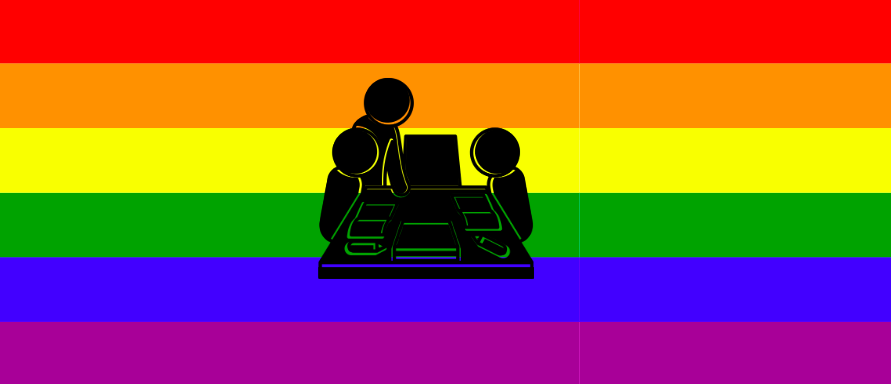New Delhi: Acknowledging that multiple and intersecting layers of discrimination aggravate work experiences for LGBTIQ+ persons, the International Labour Organization has issued a ‘learning guide’ for creating inclusive workplaces.
The 100-page guide breaks down global practices which hinder, and sometimes aid, LGBTIQ+ persons as they seek and sustain employment. It also acts as a training manual for awareness.
In spite of the Universal Declaration of Human Rights recognising that discrimination constitutes violation of human rights, only 29 countries legally recognise marriage equality, while 34 provide some same-sex partnership recognition.
In India, same-sex marriage is not recognised. Nationalist Congress Party MP Supriya Sule in April this year introduced a private member’s Bill in the Lok Sabha to legalise same-sex marriage, and provide the same marital rights to LGBTQIA+ couples that heterosexual people are entitled to.
In the same month, the Allahabad high court rejected a plea by two women to recognise their marriage on the argument that such a union was not opposed by the Hindu Marriage Act.
The report also navigates absence of LGBTIQ+ persons in the formulation of diversity and inclusion strategies in workplaces.
For this report, ILO’s research primarily focuses on Argentina, Costa Rica, France, Indonesia, South Africa and Thailand but sheds light on global trends of harassment, violence and discrimination on the basis of sexual orientation, gender identity, gender expression and sex characteristics.
Also read: ‘Don’t Have Just One Identity’: Transgender People Urge Govt to Rethink Quota Under OBC Category
It also focuses on India, in a key sub-head on how discrimination against LGBTIQ+ persons has an economic cost.
In 2014, a World Bank model highlighted that an economy of India’s size could lose up to $32 billion per year or 1.7% of that country’s gross domestic product (GDP) over social exclusion of LGBTIQ+ persons.
There is a correlation between workplace bullying and poor physical and mental health, including depression, low self-esteem and suicidal thoughts, the report says.
Such discrimination results in lost labour time, lost productivity, underinvestment in human capital and the inefficient allocation of human resources. The decreased investment in human capital and suboptimal use of human resources also results in lower output at the broader economy level.
Unsurprisingly, the report notes that persistent violence and harassment leads to poor work performance and attendance. Concealment of sexual orientation or gender identity due to fear of discriminatory treatment and violence can lead to considerable anxiety and loss of productivity.
This leads to many excluding themselves from the formal economy altogether and isolating themselves, the report finds.
“Developing human capital is a smart investment. Investing in networking and learning opportunities for LGBTIQ+ workers can contribute to finding the right people, help companies better utilise talent and build the social capital of marginalised individuals,” the ILO says.
Also read: NCERT Claims Manual on Trans Sensitivity ‘Needs Review’, HC Says to Implement By Next Academic Year
The report calls on governments to review national policy and labour law to assess a country’s work policy environment for LGBTIQ+ persons.
“This will allow the identification of concrete steps for improving the legal and policy environment, ending discrimination and exclusions, and complying with international instruments,” it says.
“Equality, diversity and inclusion in the workplace make good business sense,” the report says.
Collaboration based on social dialogue, including with LGBTIQ+ workers and their representatives, and tripartite action by governments and employers’ and workers’ organisations are critical to ensuring an all-inclusive world of work, the ILO finds.
In addition, social dialogue with LGBTIQ+ communities will allow the identification of barriers faced by community members entering the labour market and accessing government schemes.
The report highlights how governments can work with diverse partners such as small and medium industry associations, sectoral unions and informal economy workers’ associations to monitor
discrimination in the informal economy.
This article was first published on The Wire.

